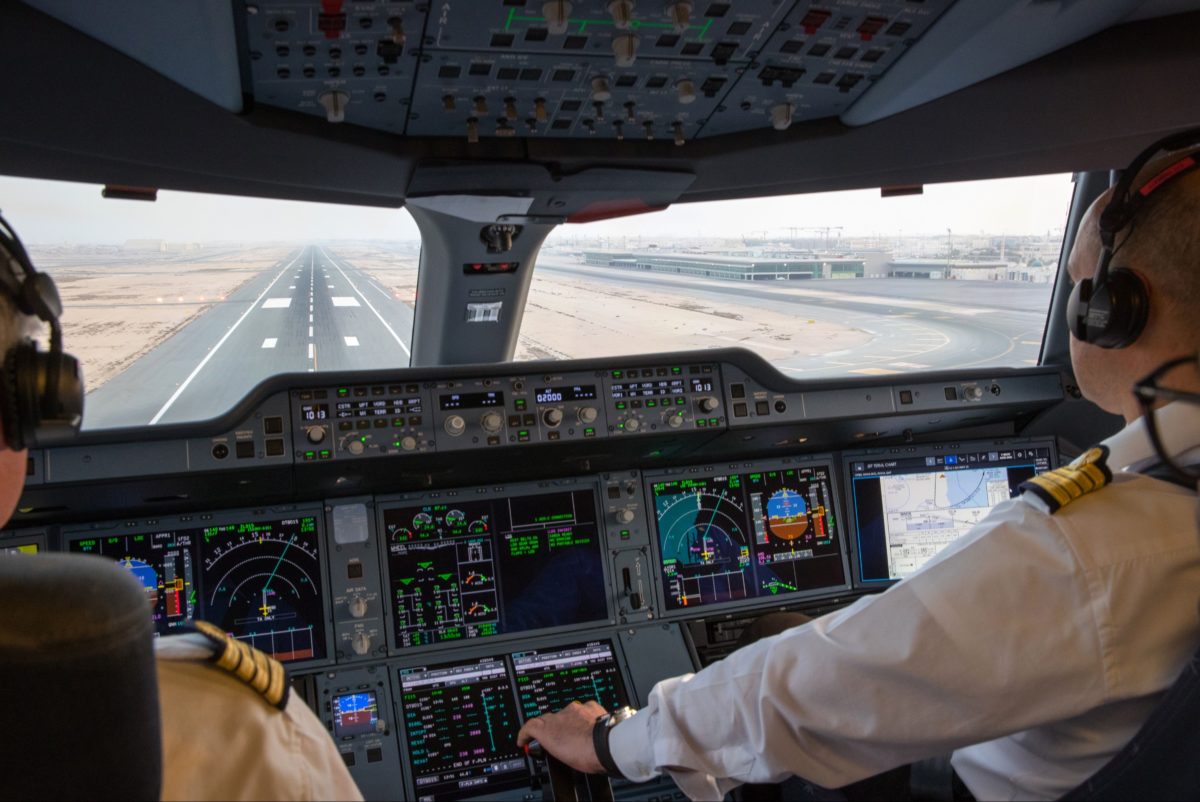Airbus has demonstrated a fully automatic takeoff in an A350; using a vision-based system that tracks the runway centre line, without the need for sidestick input from either of the two pilots, as part of their Autonomous Taxi, Take-Off & Landing (ATTOL) project.
The aircraft, an A350-1000 configured for flight testing, first begun testing the vision-based takeoff system at Toulouse-Blagnac airport on the 18th of December 2019. On board the aircraft were two pilots, two flight test engineers and a test flight engineer. Eight flights were performed using the system over a course of four and a half hours.
Instead of using an Instrument Landing System (ILS), or similar radio navigation methods, Airbus elected to use image recognition technology, installed directly on the aircraft to keep the aircraft within runway dimensions and heading.
Airbus Test Pilot Captain Yann Beaufils explains that while completing lineup on the runway, and waiting for air traffic control clearance, the autopilot is engaged. When the throttle leavers are moved to the takeoff position the aircraft accelerated down the runway, maintaining its required position prior to leaving the ground.
A video published by Airbus shows the image recognition system actively reading runway markings, to keep the aircraft aligned, before the autopilot raised the nose to an appropriate pitch, based on inputted takeoff performance data.
“The aircraft performed as expected during these milestone tests…”
Airbus Test Pilot Captain Yann Beaufils
Launched in June 2018, the ATTOL project is one of the technological demonstrators that Airbus is using to understand the impact of autonomy on aircraft. Following the successful tests of automatic takeoffs, Airbus aims to test automatic vision-based taxi and landing sequences by the middle of 2020.
Whilst concern is present about increased autonomy, and the idea of computers replacing pilots, Airbus notes that their mission is to explore autonomous technologies; along with other innovations in areas such as materials, electrification and connectivity while at the same time keeping pilots at the heart of operations, ensuring the same amount of safety we see today is present at all times.
Airbus says in their press release that autonomous technologies are crucial to supporting pilots, by allowing them to focus more on decision making and flight management. This is of particular interest for ultra long haul flights, such as Qantas’ Project Sunrise, where pilot workload work must be carefully balanced to ensure a safe and efficient flight, especially at critical stages such as takeoff and landing.
Other areas autonomous technologies could benefit aviation include improving air traffic management, addressing pilot shortages and enhancing airline operations.
What are your thoughts on this development?




